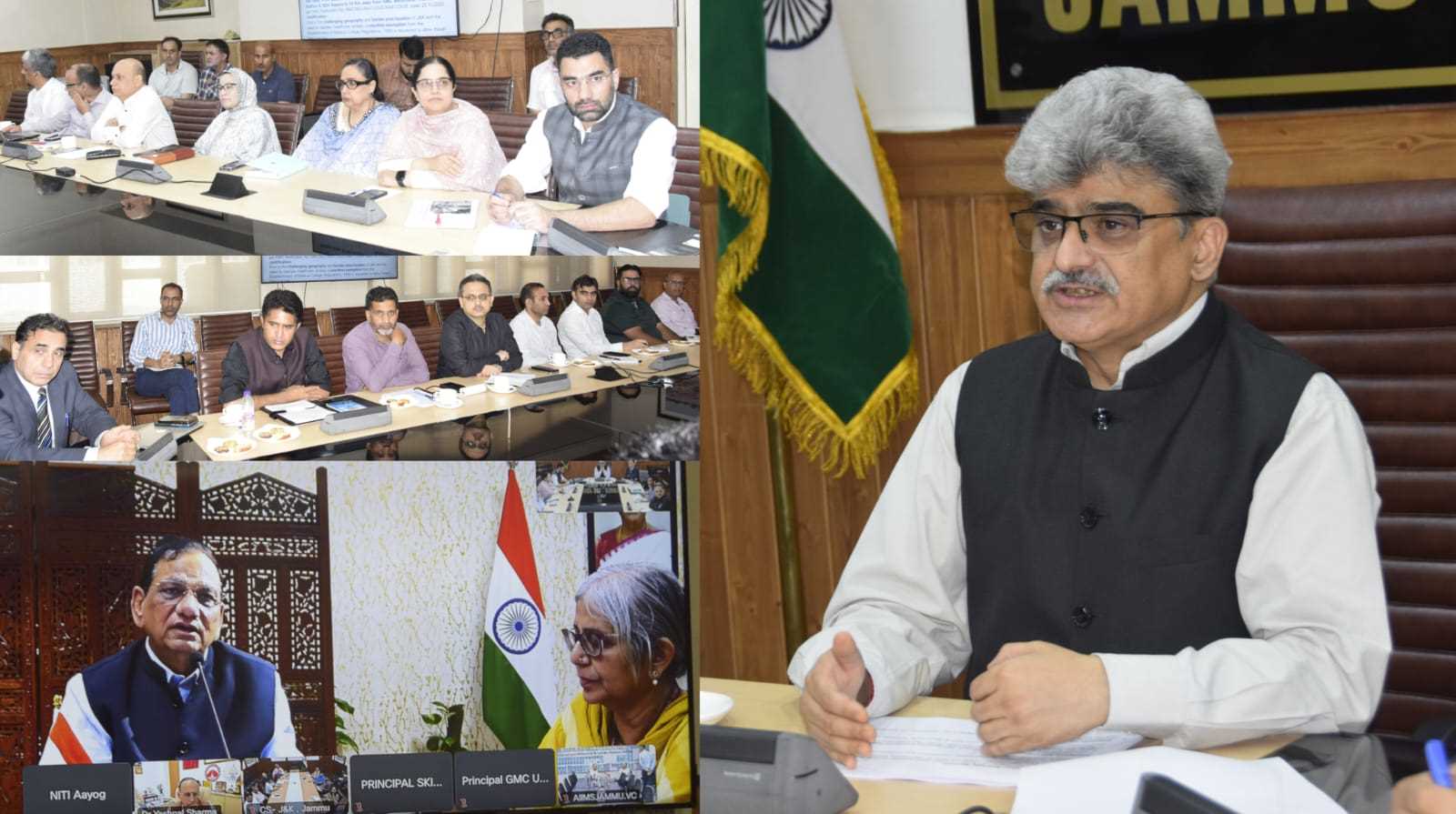
In a high-level meeting that could mark a pivotal shift in J&K's healthcare landscape, Dr. Vinod K. Paul, Member of NITI Aayog, today gave his expert advices in charting out a roadmap for comprehensive reforms in the Union Territory’s healthcare sector.
During this session the Chief Secretary, Atal Dulloo discussed various reform agendas initiated by J&K recently and sought his assistance in discerning the way forward in making best out of them.
The session witnessed active participation from key stakeholders including the Secretary of Health and Medical Education, Mission Director NHM, CEO of State Health Agency, Director SKIMS, Principals of Government Medical Colleges, Director Health Services (Jammu and Kashmir), and heads of various healthcare and regulatory bodies.
The discussions focused on a series of transformative strategies ranging from medical education expansion to digitization of critical care delivery systems with the overarching aim of ensuring equitable, accessible, and quality healthcare for every citizen of the UT, especially those in far-flung and underserved regions.
Dr. Vinod K. Paul, an eminent pediatrician and former Professor at AIIMS, New Delhi, commended J&K’s rapid adoption of digital health interventions like Tele-ICUs, Telemedicine, and Tele-Consultation.
Dr Paul is in charge of the Health and Nutrition vertical in NITI Aayog. He has contributed immensely towards formulating the POSHAN Abhiyaan and the Ayushman Bharat Yojana. He served as the Chairman of The Board of Governors of the National Medical Council of India from 2018-2020. During COVID-19 pandemic, Dr Paul chaired the National Task Force on COVID-19 and the Empowered Group on Medical Emergency Management Plan.
While taking cognizance of the steps initiated by J&K administration Dr Paul noted that such innovations hold the key to bridging the urban-rural healthcare divide and extending timely medical expertise to remote communities. He further emphasized the importance of quality assurance in these services and recommended a hybrid reporting model involving both public and private institutions for real-time monitoring, load management, and performance evaluation.
Significant deliberations were held on expanding postgraduate and super-specialty courses such as MD, MS, DM, MCH, and DNB across the UT. A roadmap for augmentation of tertiary care health services in the new medical colleges was sketched during this meeting with the help of inputs received from the NITI Aayog member.
While speaking in the meeting Dr. Syed Abid Rashid Shah, Secretary H&ME, highlighted that these enhancements would ensure a steady stream of highly skilled specialists, strengthening the health system in the long term.
The meeting also tackled procedural challenges in securing additional MBBS seats under NMC norms. To address constraints related to distance criteria in designating District Hospitals as associated units of Government Medical Colleges, participants suggested alternate justifications based on patient travel time and accessibility, an approach aimed at maximizing infrastructure utility and patient outcomes.
The Chief Secretary and Dr. Paul also reviewed strategies to fortify emergency care services. Proposals to create dedicated Emergency Medicine Departments in peripheral medical colleges were debated threadbare, alongside plans to bolster casualty services.
Another key focus area was geriatric care. A detailed blueprint was requisited to align with NITI Aayog’s "Services Care" framework, with a specific thrust on elder-friendly infrastructure and services. A proposal to enable two AIIMS established here to adopt nearby District Hospitals and Community Health Centres was discussed, paving the way for enhanced referral systems, tele-diagnostics, and training support.
In a bid to increase dental healthcare access, the meeting endorsed the deployment of mobile dental units both government and private across remote areas of the UT for the sole purpose of accessibility to such services in these areas besides utilizing the services of trained dental surgeons of J&K.
The discussion concluded with a consensus on adopting a project-driven model to scale Tele-ICUs under a hybrid framework, leveraging central and state funds, and collaborating with NGOs and expert groups to study best practices from other states.
Chief Secretary expressed confidence in J&K’s vision to emerge as a model healthcare destination through targeted interventions, capacity building, and inclusive health policy design. “Our priority remains universal access, quality assurance, and sustainability of healthcare systems,” he remarked.
As this region stands on the cusp of a healthcare transformation, the collaborative synergy between the UT administration and NITI Aayog promises to script a new chapter in public health, one that places people at the heart of policy and innovation with focus on quality health services delivery nearer to the doorsteps of the citizens of this UT.
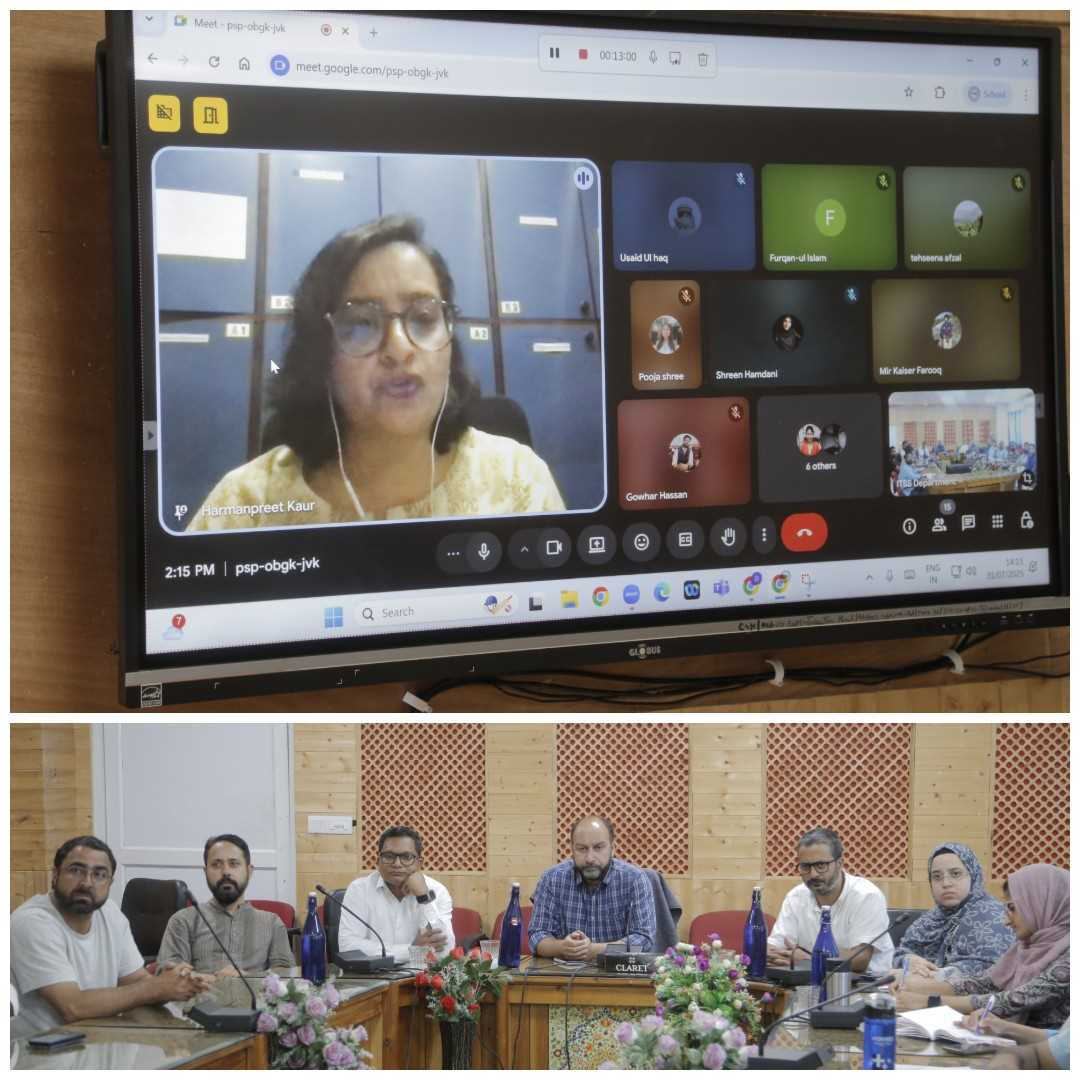
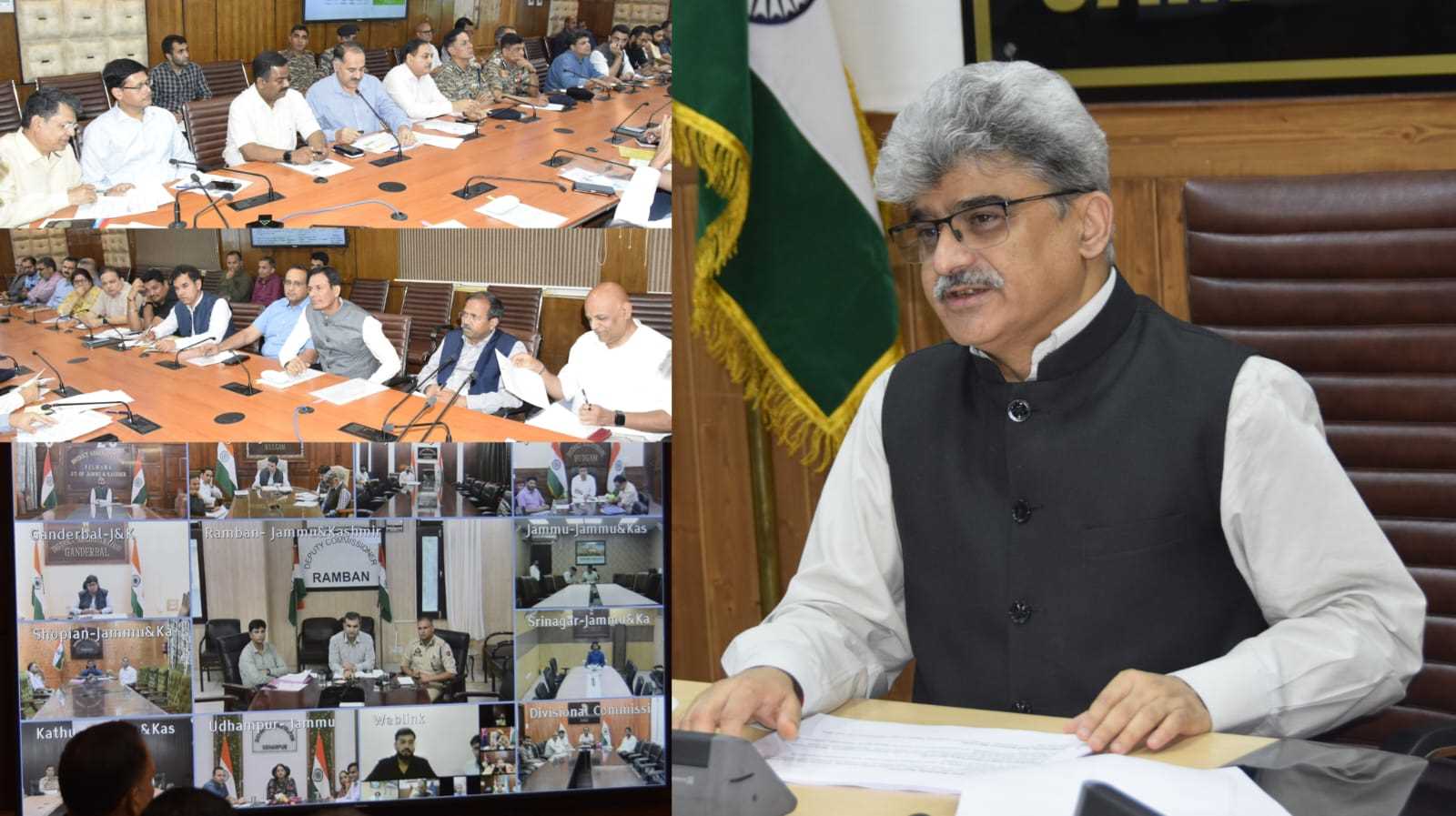
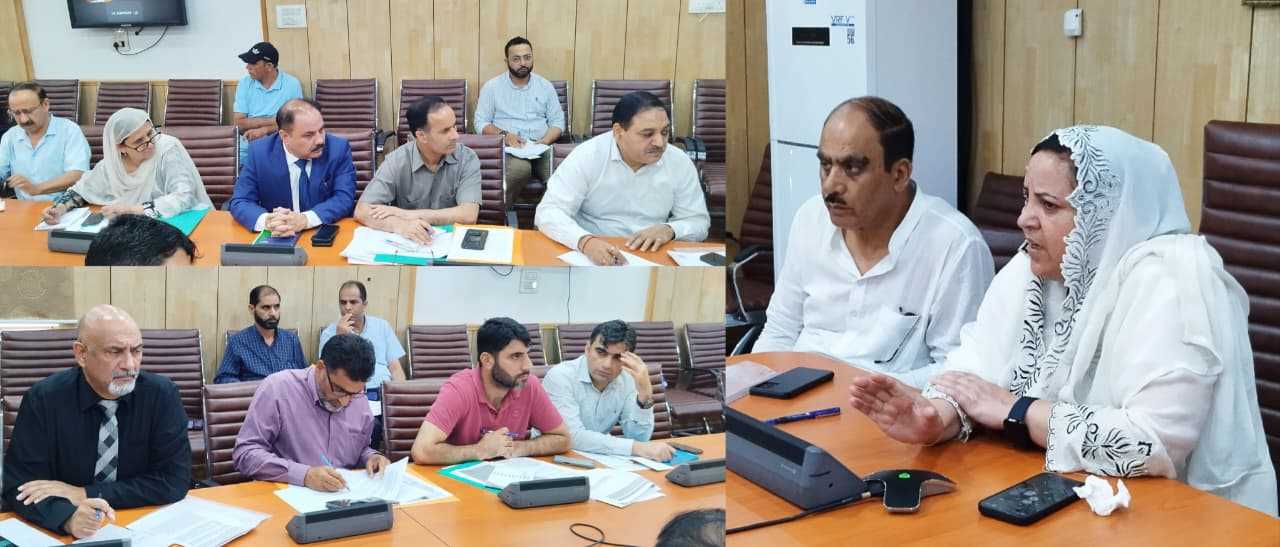
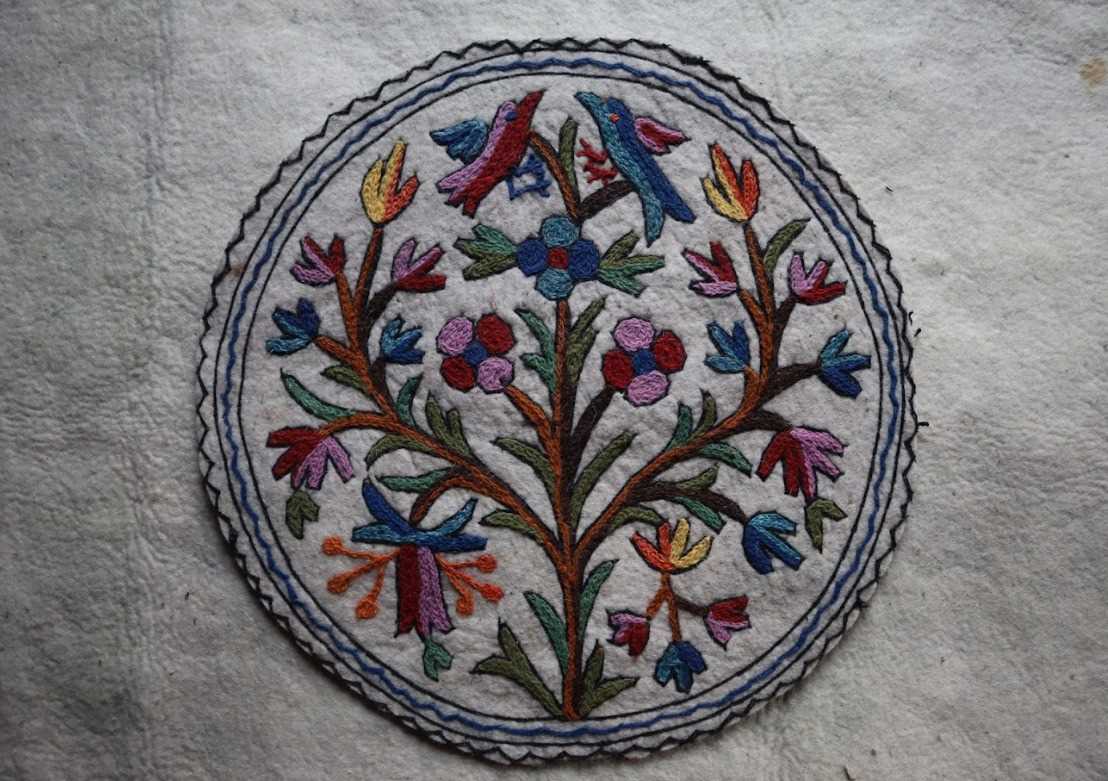
In a high-level meeting that could mark a pivotal shift in J&K's healthcare landscape, Dr. Vinod K. Paul, Member of NITI Aayog, today gave his expert advices in charting out a roadmap for comprehensive reforms in the Union Territory’s healthcare sector.
During this session the Chief Secretary, Atal Dulloo discussed various reform agendas initiated by J&K recently and sought his assistance in discerning the way forward in making best out of them.
The session witnessed active participation from key stakeholders including the Secretary of Health and Medical Education, Mission Director NHM, CEO of State Health Agency, Director SKIMS, Principals of Government Medical Colleges, Director Health Services (Jammu and Kashmir), and heads of various healthcare and regulatory bodies.
The discussions focused on a series of transformative strategies ranging from medical education expansion to digitization of critical care delivery systems with the overarching aim of ensuring equitable, accessible, and quality healthcare for every citizen of the UT, especially those in far-flung and underserved regions.
Dr. Vinod K. Paul, an eminent pediatrician and former Professor at AIIMS, New Delhi, commended J&K’s rapid adoption of digital health interventions like Tele-ICUs, Telemedicine, and Tele-Consultation.
Dr Paul is in charge of the Health and Nutrition vertical in NITI Aayog. He has contributed immensely towards formulating the POSHAN Abhiyaan and the Ayushman Bharat Yojana. He served as the Chairman of The Board of Governors of the National Medical Council of India from 2018-2020. During COVID-19 pandemic, Dr Paul chaired the National Task Force on COVID-19 and the Empowered Group on Medical Emergency Management Plan.
While taking cognizance of the steps initiated by J&K administration Dr Paul noted that such innovations hold the key to bridging the urban-rural healthcare divide and extending timely medical expertise to remote communities. He further emphasized the importance of quality assurance in these services and recommended a hybrid reporting model involving both public and private institutions for real-time monitoring, load management, and performance evaluation.
Significant deliberations were held on expanding postgraduate and super-specialty courses such as MD, MS, DM, MCH, and DNB across the UT. A roadmap for augmentation of tertiary care health services in the new medical colleges was sketched during this meeting with the help of inputs received from the NITI Aayog member.
While speaking in the meeting Dr. Syed Abid Rashid Shah, Secretary H&ME, highlighted that these enhancements would ensure a steady stream of highly skilled specialists, strengthening the health system in the long term.
The meeting also tackled procedural challenges in securing additional MBBS seats under NMC norms. To address constraints related to distance criteria in designating District Hospitals as associated units of Government Medical Colleges, participants suggested alternate justifications based on patient travel time and accessibility, an approach aimed at maximizing infrastructure utility and patient outcomes.
The Chief Secretary and Dr. Paul also reviewed strategies to fortify emergency care services. Proposals to create dedicated Emergency Medicine Departments in peripheral medical colleges were debated threadbare, alongside plans to bolster casualty services.
Another key focus area was geriatric care. A detailed blueprint was requisited to align with NITI Aayog’s "Services Care" framework, with a specific thrust on elder-friendly infrastructure and services. A proposal to enable two AIIMS established here to adopt nearby District Hospitals and Community Health Centres was discussed, paving the way for enhanced referral systems, tele-diagnostics, and training support.
In a bid to increase dental healthcare access, the meeting endorsed the deployment of mobile dental units both government and private across remote areas of the UT for the sole purpose of accessibility to such services in these areas besides utilizing the services of trained dental surgeons of J&K.
The discussion concluded with a consensus on adopting a project-driven model to scale Tele-ICUs under a hybrid framework, leveraging central and state funds, and collaborating with NGOs and expert groups to study best practices from other states.
Chief Secretary expressed confidence in J&K’s vision to emerge as a model healthcare destination through targeted interventions, capacity building, and inclusive health policy design. “Our priority remains universal access, quality assurance, and sustainability of healthcare systems,” he remarked.
As this region stands on the cusp of a healthcare transformation, the collaborative synergy between the UT administration and NITI Aayog promises to script a new chapter in public health, one that places people at the heart of policy and innovation with focus on quality health services delivery nearer to the doorsteps of the citizens of this UT.
© Copyright 2023 brighterkashmir.com All Rights Reserved. Quantum Technologies